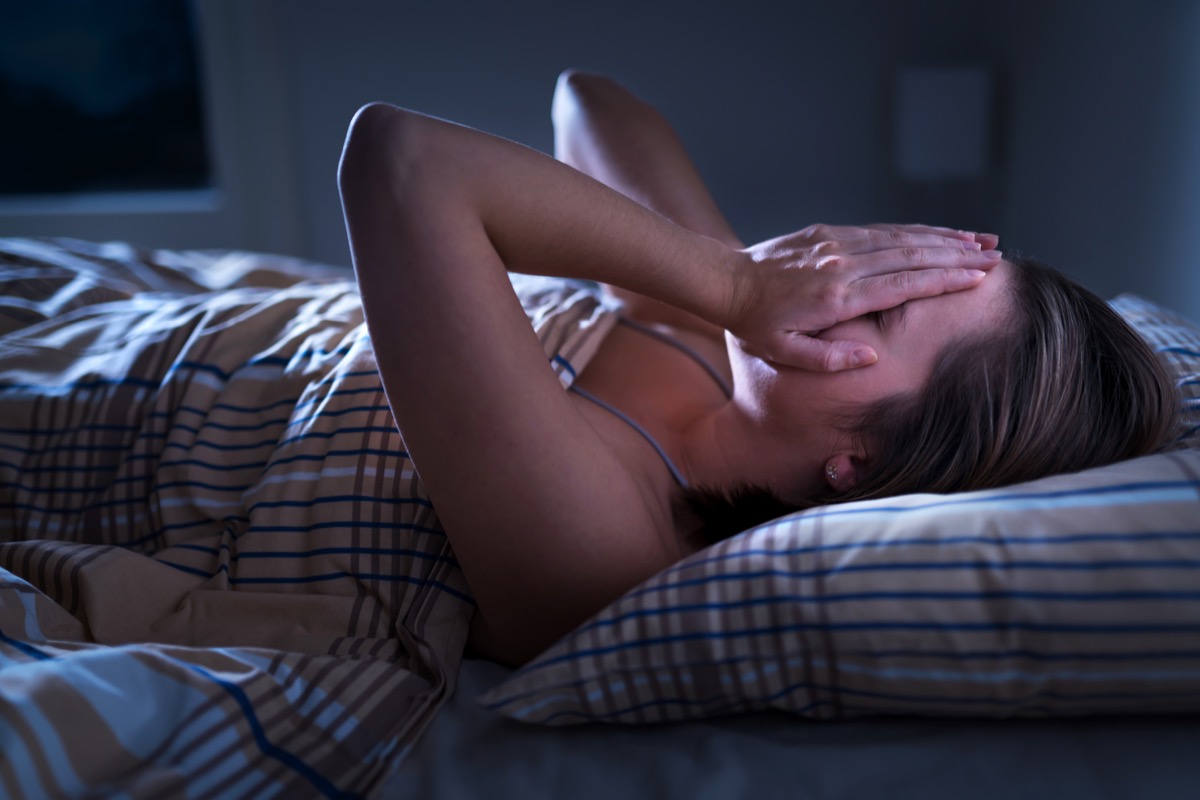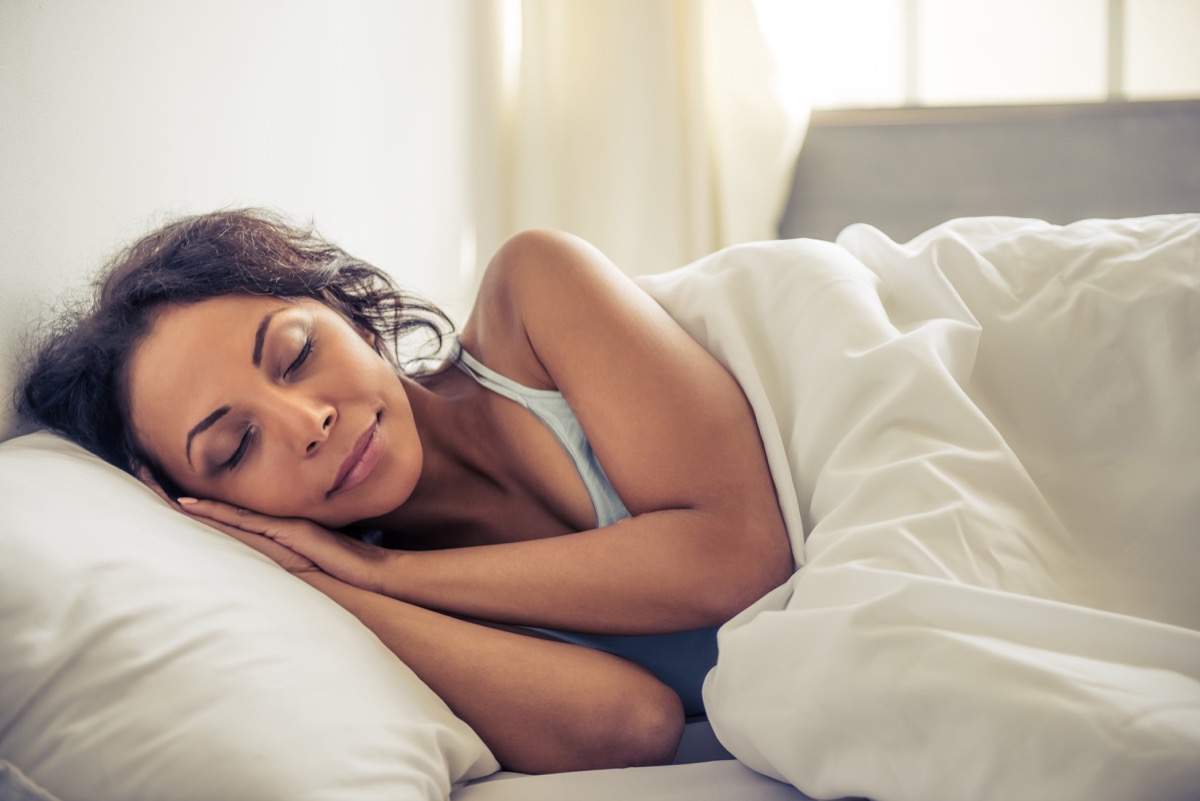If you’re not getting a good night’s sleep, your sex life could be suffering. An April 21 study from the North American Menopause Society (NAMS) found that “insufficient quality sleep also may lead to problems in the bedroom in the form of female sexual dysfunction.” According to the study, women who got poor quality sleep were twice as likely to report issues such as lack of sexual interest or pleasure than those who had quality slumber. “This study highlights an association between poor sleep quality and sexual dysfunction. These are two common issues for midlife women, and asking about and addressing each may contribute to improved quality of life,” study senior author Stephanie Faubion, MD, NAMS’ medical director, said in a statement. And for more sleep concerns, If You Take This Common Medication to Sleep, Stop Now, New Study Says. Conversely, the study found that good sleep quality was linked with sexual activity. “Doesn’t surprise anyone, right?” Faubion said to CNN. “If you put a platter of sleep and a platter of sex in front of a tired woman, she’s going to pick sleep every time.” By that logic, if you’re well-rested, you’re more likely to want to engage in sex. Having sex can also help you get better sleep. “Most women enjoy better sleep after indulging in sexual activity as the body releases hormones, including oxytocin and prolactin, after an orgasm,” says Wayne Ross, sleep researcher and adviser at InsideBedroom. “These hormones induce feelings of satisfaction and relaxation, and levels of hormone cortisol also reduce, thereby bringing on the urge to sleep.” And for things that might be keeping you awake, If You Can’t Sleep, This OTC Medication Could Be Why, Experts Say. The effects of missing out on quality sleep can show up in a number of ways, including—crucially—when it comes to your hormones. “Sleep is essential for hormone release and regulation, [including] the hormones responsible for sexual function and libido,” Chelsie Rohrscheib, PhD, lead neuroscientist and sleep specialist at Tatch, says. “Reduced sex hormones and increased stress hormones can majorly impact sex drive.” Additionally, sexual function is regulated by the autonomic nervous system (ANS), which “controls bodily functions that are outside our conscious control and happen automatically, such as heartbeat, digestion, urination, and sexual arousal,” Rohrscheib explains. High-quality sleep is essential for our ANS to function properly. “When we lose sleep, not only does the ANS not function as efficiently as it should, but we also raise our stress levels, which triggers our nervous system to enter survival mode. When we’re in survival mode, one of the first bodily functions to get sidelined is sexual desire and arousal,” she adds. And for more useful information delivered straight to your inbox, sign up for our daily newsletter. If you’re looking to improve your sleep quality—and subsequently, your sex life—there are a few steps you can take. Rohrscheib suggests following a strict sleep schedule nightly, even on weekends. You should also create a regular pre-sleep routine that involves relaxing activities you can do half an hour to an hour before bedtime. “Relaxing activities might include reading, listening to music, meditating, or taking a bath,” Rohrscheib notes.ae0fcc31ae342fd3a1346ebb1f342fcb Avoid screens before bed and stop consuming caffeine at least six hours before bedtime. And aim for seven to nine hours of sleep each night. “Science has consistently shown that getting less than seven hours of sleep has many detrimental effects on the brain and body,” Rohrscheib adds. And for more things disrupting your sleep cycle, If You Can’t Sleep, This Common Medication Could Be Why, Study Says.



